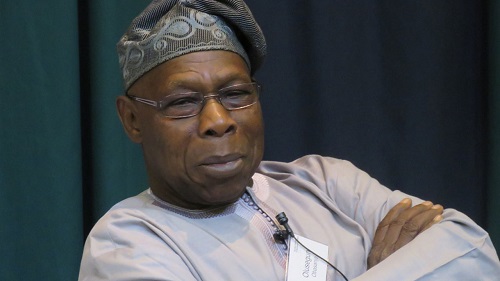A new book on letters by former President Olusegun Obasanjo tagged, The Letterman: Inside the ‘Secret’ Letters of Former Nigerian President Olusegun Obasanjo’, is attracting accolades from senior citizens, including a former Secretary General of the Commonwealth, Emeka Anyaoku; the Catholic Archbishop of Sokoto Diocese, Mathew Hassan Kukah and a former Chairman of the Federal Inland Revenue Service (FIRS), Ifueko Omogui Okauru.
Commendations also come from Toyin Falola, the Jacob and Frances Sanger Mossiker Chair Professor in the Humanities at the University of Texas at Austin, United States; Dan Agbese, respected columnist and writer, who was also Editor-in-Chief and co-founder of Newswatch, a foremost and trail-blazing investigative magazine; and Kadaria Ahmed, founder/Chief Executive Officer at Radio Now 95.3FM, Lagos, television host, and former Editor of NEXT newspaper.
The Letterman, a 492-page, 25-chapter narrative non-fiction, curates some of the most significant and historical letters written and received by former President Obasanjo, which compellingly tell the story of his life. A number of these letters, written to dignitaries in Nigeria and around the world have never been publicly seen.
The book will be presented to the public in Abuja, today. But those who have seen and reviewed the publication, ahead of its unveiling, commended the work whose chronicle unfolds from the time of Obasanjo as General Officer Commanding the Third Marine Commando Division and his wartime efforts, through his tenure as military Head of State between 1976 and 1979, his continental liberation struggles and political activism from the 1970s to 1999, his civilian presidential term from 1999 to 2007, as well as his post-presidency era.
“The Letterman takes the reader through President Obasanjo’s complex, intricate, even serpentine mind, captured by the contents of his no-hold-barred letters. The author has offered readers a precious piece of recorded history that will stand the test of time and occupy a special place in Nigeria’s rather barren shelves of presidential writing.”
Anyaoku in his assessment of the book said: “I believe that the Olusegun Obasanjo letters will find a prominent place in the chapters of Nigeria’s contemporary history, as informative insights into the national affairs of the country when they were written. I, therefore, recommend this book, The Letterman, by Musikilu Mojeed to the reading public.”
In her own commendations, Okauru said: “I am amazed by the sheer quantum and depth of records accessed to write this book and the record-keeping ability of the letter writer, which is worthy of emulation. This book is truly a treasure trove of information.
Falola made it clear that “Mojeed has miraculously uncovered treasure troves of letters and meticulously analysed momentous moments, mindful of the place of the documents in our country’s history.
“The Letterman reveals values and character in strong prose that exposes the workings of the inner mind of Nigeria’s most complicated leader, self-assured nationalist, versatile entrepreneur and belletrist. This is a book for keeps – what historians categorise as an archive with an imperishable quality. This book will become both the source and preface to a series of other books on the language of politics and the politics of language. It is a masterpiece to understand the anatomy of authority, the conventions of power, and the intensity of intra-elite intrigues.”
“I cannot recommend this book highly enough for all those who want to see the Balogun of Owu kingdom in his elements. I commend the author for charting the unique path in biographical writing and character study in our country. I repeat: this is unique.”
Kadaria Ahmed, obviously excited by the contents of the book, said: “This most important book provides significant insight into the philosophy and politics (life and times, head, heart and soul) of one of the most consequential post-colonial African leaders, former President Olusegun Obasanjo. Mojeed has created a timeless resource that will enrich important conversations on nation building and Pan Africanism, today and years into the future.”



